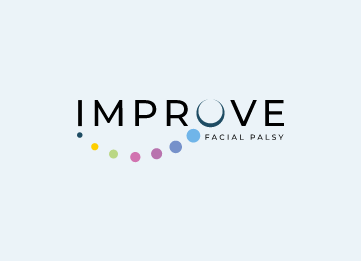Bell’s palsy is a diagnosis made by exclusion which means that all other possible causes have been ruled out.
Clinical Examination
A doctor will carry out an examination of the nerves which control the head and neck called the cranial nerves. The patient will be asked to perform a range of facial movements, for example, raising the eyebrows, rounding the lips, closing the eyes, and smiling. A diagnosis of Bell’s palsy is made if you have, in the space of up to 72 hours, lost the ability to move the affected side of your face or your facial movements are severely disrupted, and you have no other signs or symptoms.
To ensure there are no other signs of disease or illness, other tests may be requested. For example:
- Blood tests to exclude other causes, such as, Ramsay Hunt Syndrome and Lyme Disease.
- Magnetic Resonance Imaging (MRI) and Computerised Tomography (CT Scan), to exclude tumours
- Tests carried out by specialist clinicians, such as, Ears, Nose and Throat specialists (ENT). This may include a range of hearing tests.
What is the initial treatment for Bell’s palsy?
The aim of early intervention is to minimise the swelling/inflammation around the facial nerve in order to stop it being squeezed or compressed. The first line of treatment to help reduce the inflammation is a course of oral steroids called Prednisolone. To maximise the benefits of steroids they must be given within the first 72 hours of symptoms appearing. There is no evidence of their efficacy if given after this time period. This means there is no evidence that they will help relieve the pressure on the facial nerve by reducing the swelling and therefore will not be effective in improving recovery.
Recent research has shown that antiviral drugs do not improve the outcome for people with Bell’s palsy. Antiviral drugs only benefit those people who have developed a facial palsy secondary to a viral infection, such as Ramsay Hunt syndrome. Clinical examination will alert the doctor to this potential diagnosis, as commonly there is a rash or blisters in or around the ear, scalp or hair line. Blisters may also appear inside the mouth.
Whilst taking oral steroids may improve recovery for some people, others receiving the same treatment may not benefit.
It is not clear why steroids may benefit some but not others but certainly timely treatment with steroids will maximise a person’s potential to recover.
Eye care
Looking after your eye if it is unable to close or blink is extremely important. Whilst this is not a treatment for the Bell’s palsy itself, it is an essential part of the management of your facial weakness or paralysis. Why?
- An eye that is unable to blink or close will be vulnerable to dryness because when we blink, we lubricate our eyes. Consequently, dry patches appear over the surface of the eye and dry patches have the potential to ulcerate. Ulcers left untreated can eventually damage a person’s vision permanently.
- An eye that does not close completely is also vulnerable to dryness with the same consequences outlined above.
- An eye which does not close, or blink will also be unable to protect itself from light, wind, dust, debris, or the sudden approach of a foreign object.
Consequently, until the facial nerve recovers and the blink and eye closure return, it is important to look after your eye very carefully. Your doctor should give you help and advice about caring for your eye. If this advice is not given then you must ask for help in the form of eye lubricants or drops, and special tape so that you can tape your eye closed for sleep.
You may be feeling quite low and unwell so allow yourself time to recover. Make sure you rest and perhaps some time off work may be indicated. A healthy balanced diet and plenty of fluids will help maximise your recovery. Remember that the majority of people recover within the first few weeks. The charity Facial Palsy UK is a useful resource and offers emotional support for those living with facial palsy. www.facialpalsy.org.uk



